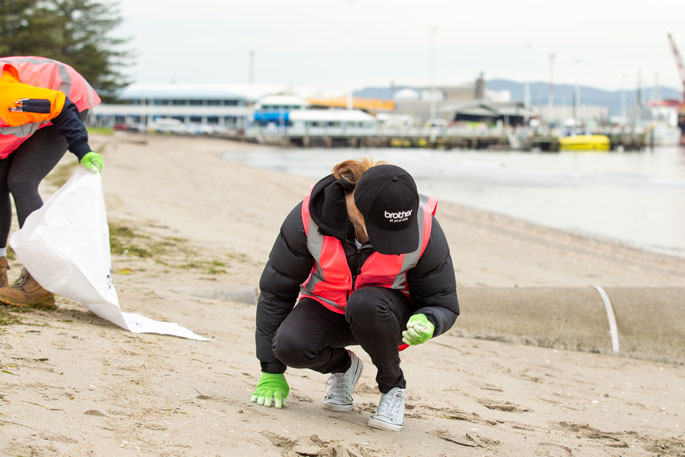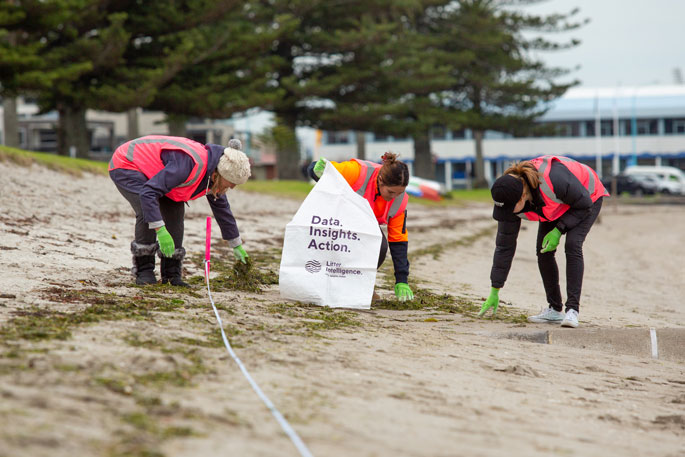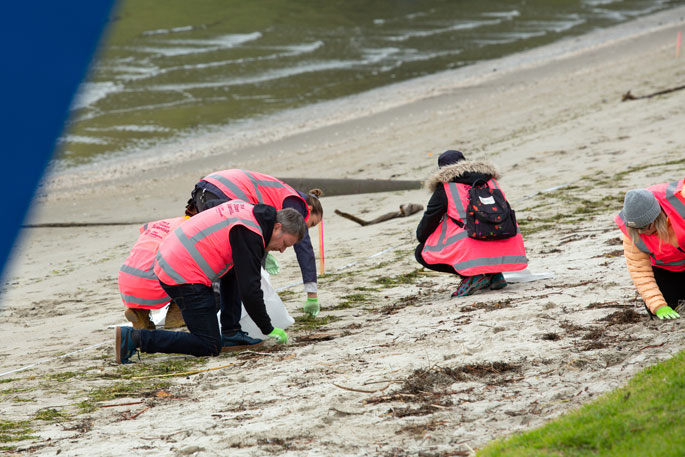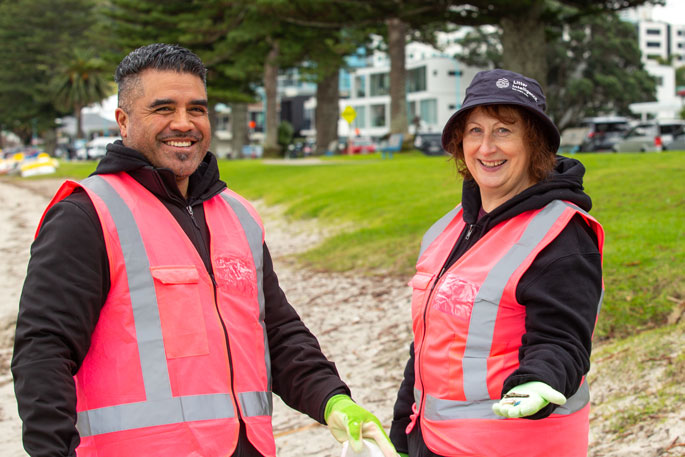More than 10 volunteers took part in a deep clean and survey of Pilot Bay in Mount Maunganui this week - removing a surprising amount of litter across a 1300m2 stretch of the outwardly tidy beachfront.
The group was made up of volunteers from technology business Brother New Zealand, who meticulously combed the section and analysed their findings via the Sustainable Coastline's Litter Intelligence Programme.
'Litter Intelligence is a nationwide programme that aims to inspire and inform better decisions for a world without litter," says Litter Intelligence manager Ben Knight.
"It's grown so much since launching in 2018 which is a true testament to the dedicated efforts of our brilliant volunteer Citizen Scientists and our committed programme funders like Brother, who have signed up to be both and who we're delighted to have onboarded this year as Litter Intelligence Monitoring Supporters."
 Volunteers didn't have to dig deep to find cigarette butts throughout the beach.
Volunteers didn't have to dig deep to find cigarette butts throughout the beach.
Brother has been an active sponsor of Sustainable Coastlines since 2017, but this year marks its first as an official LI Monitoring Supporter for Pilot Bay - something it has agreed to fund until at least 2025 as part of its wider commitment to the United Nation's Sustainable Development Goals.
'Pilot Bay has a visual assessment grade of A, meaning it appears from first look to have little to no litter present. So, it was a shock to find large contents of plastic and cigarette butts throughout the sand,” says Mayuko Hirose, Director of Corporate Strategy and CSR at Brother.
Of the total 317 man-made items collected, 199 were plastic, including 79 cigarette butts, 40 unidentifiable hard plastics, 15 bottle caps, and 11 food wrappers.
Foamed plastic (polystyrene, ear plugs) made up the second largest group, totalling 85 pieces.
Other litter found included metal, glass, rubber bands and chewing gum.
 Volunteers from Brother New Zealand found a 'shocking' amount of plastic.
Volunteers from Brother New Zealand found a 'shocking' amount of plastic.
The assessment also found an estimated 100 microplastics on the shoreline.
Microplastics are classified as fragments of any type of plastic measuring less than 5mm in length.
The particles come from a variety of sources including improper breakdown of larger plastics, and microbeads - exfoliants that can be found in some skincare products and toothpastes. Mayuko said that while microplastics are harder to spot, they pose a very real risk to sea life.
The volunteer group will continue to survey Pilot Bay regularly over a three-year period to monitor changes and opportunities for improvement from beach goers and businesses.
 Warwick Beban, Managing Director at Brother with volunteers scouring Pilot Bay for litter.
Warwick Beban, Managing Director at Brother with volunteers scouring Pilot Bay for litter.
'Reducing litter on our beaches and in our waterways is a cause close to our hearts at Brother, and given the proximity of Pilot Bay to our Tauranga Head Office, we are so pleased to be taking care of this special piece of Aotearoa to create long term change,” says Mayuko.
Litter Intelligence is New Zealand's first and only national litter monitoring programme, enabling communities to collect data, gain insights and take action to prevent litter.
Led by New Zealand charity Sustainable Coastlines, the programme works in close collaboration with the Ministry for the Environment, Department of Conservation and Statistics New Zealand.
All findings are published and regularly updated at https://litterintelligence.org, where businesses and individuals can also find information on how to get involved.



1 comment
Butts
Posted on 01-07-2022 17:16 | By CliftonGuy
I am aware of the Smokefree movement, but I am highly surprised that the government has not made it mandatory that all cigarette filters are demonstrably biodegradeable, and within a reasonably short time under normal conditions.
Leave a Comment
You must be logged in to make a comment.